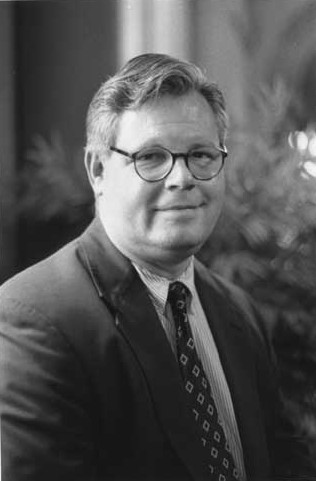Difference between revisions of "Thomas Duane"
Rlschlittler (talk | contribs) |
|||
| Line 1: | Line 1: | ||
| + | {{Protected}} | ||
| + | |||
| + | |||
[[Image:OEThomasDuane.jpg|center|frame|Thomas Duane (D), State Senate, New York City, New York. Photo by Ron Schlittler.]] | [[Image:OEThomasDuane.jpg|center|frame|Thomas Duane (D), State Senate, New York City, New York. Photo by Ron Schlittler.]] | ||
Revision as of 11:49, 29 July 2008
|
Thomas Duane (D) Born January 30, 1955 State Senate, District 27 New York City, New York 300,000 constituents |
Career Overview Elected Democratic District Leader in 1982 Elected to City Council in 1991 Re-elected 1993, 1997 Elected to State Senate in 1998 Re-elected in 2000, 2002, 2004, 2006 |
Among Thomas Duane’s early efforts was ensuring same-gender households would be entitled to keep rent controlled apartments in the event one of the partners should die, just as with married couples. He says the AIDS crisis made this victory all the more significant because people were suddenly dying and the policy was in place in time for partners to be able to stay in their homes.
Interview with Thomas Duane for Out and Elected in the USA
Q: What would you say are some of the more significant aspects of your experience in elected office?
A: An important part of my experience since having been elected is being the only self-identified gay person in this legislative body, and the only self-identified person with HIV. That was both my experience in the New York City Council and my experience in the New York State Senate.
For instance, when we debated the issue of bias crimes legislation, I was able to tell my colleagues of my experience having been a victim of bias crimes personally, and what happened both in terms of the response of law enforcement and, that at the time that it happened, there was no documentation process. There was no way that bias crimes were reported and documented. And also, the case was adjudicated without my involvement. I called about it a week or ten days after the assault had happened, and the case had already gone before the judge and had been pled out as a misdemeanor. Now that happened in 1983. But I was also assaulted twice more on the streets of the district I represent. The first one, the one that happened in ’83, happened in the parking lot of a bar, and I needed emergency room treatment for bruised ribs and cuts. The other two didn’t require emergency room treatment, but in one case I was with a partner and was narrowly missed by a full bottle of beer, and in the other case I was smashed in the face and got a cut above my eye and my glasses were broken. And that doesn’t even count the number of times that I’ve been verbally assaulted – and you never know when a verbal assault is going to turn into a physical assault. When I speak to a lesbian, gay, bisexual and transgendered group of people, I often ask them, “How many of you have been the victim of bias related physical or verbal assaults?” and generally it is at least 90 percent.
Q: How have your colleagues responded to your personal accounts?
A: I think it has a big impact.
Q: What held up the state bias-crimes legislation for so long?
A: I wasn’t able to bring it to a vote because the Republican majority leader of our body refused. He would not even allow a vote. There was no doubt in my mind but that if he did permit a vote it would pass, and indeed, after eleven years of hold ups, the New York legislature finally passed a comprehensive enhanced penalty hate crimes bill that includes sexual orientation in 2000.
Q: How did you get involved in politics?
A: I started as a community organizer on housing issues and land use and zoning issues. And gay issues. In addition to that I became active in my local Democratic Party – I became a leader, actually elected as a Democratic District Leader. I served in that capacity for seven years. I also, early on, became an AIDS activist. Then I ran for office in 1989 for the City Council and lost, then ran again in ’91 and won. But it was really just a natural extension of my community and neighborhood activism.
Q: What would you say to openly gay people today who may be considering a run for elected office?
A: Still, open gay, lesbian, bisexual and transgendered people are way under-represented in elective office around the country. Out of all of the legislators and city council people and county supervisors, school board people who are elected, a very, very small minority are lesbian or gay. So there is an enormous need to elect more gay people to office. I was very proud this past fall to be part of a group of people who supported the successful candidacy of a woman, Melissa Sklarz, who is the first transgendered party official elected in New York. I am sure nationwide, there are very few transgendered people in elective office. She was elected to be a Judicial Delegate, to put the democratic candidate on the ballot for Supreme Court Judge in New York County. I’m very proud of that, but we still have a lot more work to be done.
Return to Out and Elected in the USA index • Go to next article
